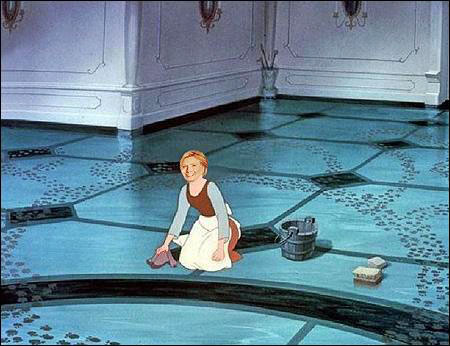|

by Pam Martens and Russ Martens
July 2, 2014
from
WallStreetOnParade Website

In an interview with ABC's Diane Sawyer on June 9,
Hillary Clinton said that she
and former President Bill Clinton were "dead broke" when they
left the White House in January 2001.
The remark was made in this context by
the former first lady: "We came out of the White House not only dead
broke, but in debt. We had no money when we got there, and we
struggled to, you know, piece together the resources for mortgages,
for houses, for Chelsea's education. You know, it was not easy."
The remark is causing a storm of criticism, both for its lack of
veracity and for its insensitivity to what actual financial struggle
means in a nation with 46 million people living below the poverty
level – including almost one in every five children.
CounterPunch's Jeffrey St. Clair has a particularly poignant
full page article in the current issue of the progressive
CounterPunch Magazine.
St. Clair writes, tongue-in-cheek,
about Hillary's exit from the White
House:
"With no life-ring to cling to,
Hillary was forced to work furiously to save her family from a
Dickensian existence of privation and destitution."
Former Presidents are not "dead broke"
by any possible interpretation.
They receive a pension, which is
currently 10 times the poverty level for a family of three; monies
for staff, travel, an office, postage and supplies and Secret
Service protection for themselves and their spouse.
The President's pension kicks in as soon as he leaves office.
According to
the Congressional Research Service,
former President Clinton received in pension and other perks,
adjusted for 2013 dollars,
Since 2011, the outlay by the taxpayer
for former President Clinton has been just under $1 million.
Including what is budgeted for fiscal
year 2014, Clinton will have received a taxpayer outlay of
$15,937,000 since leaving the White House in 2001.
According to the Congressional Research Service, for fiscal
year 2014,
"office space rental payments were
the highest category of cost for former Presidents Clinton and
George W. Bush" with former President Clinton's office budgeted
at $450,000 and former President George W. Bush's budgeted at
$440,000.
Both former Presidents Clinton and G.W.
Bush have offices of over 8000 square feet, more than three times
the size of many middle class homes.
A former President's pension is equal to pay for Cabinet
Secretaries, which was $199,700 in calendar year 2013 and set to
rise to $201,700 this year. Both of the Clintons likely knew they
would become multi-millionaires very rapidly upon leaving the White
House.
Just sixteen days after
George W. Bush was sworn in on
January 20, 2001, Bill Clinton delivered his first speech for
$125,000 to Wall Street brokerage and investment bank Morgan
Stanley. The speeches continued every few days, with the former
President earning an eye-popping $1.475 million in just his first
two months out of office.
The price per speech has reached
$250,000, $300,000 even $500,000 at times. The Clintons earned
millions more in book advances and royalties.
According to the joint tax return released by the Clintons, in that
2001 year of financial desperation, the couple reported unadjusted
gross income of,
It is true that the Clintons had legal
debts when they left the White House but they were miniscule
compared to the former President's earning power on the speech
circuit.
PolitiFact
also notes the following:
"…the federal disclosure form does
not include homes used for personal use and the Clintons owned
two.
In 1999, they bought a five-bedroom
home in Chappaqua, N.Y., for $1.7 million. In December 2000,
just as they were leaving the White House, they bought a
seven-bedroom house near Embassy Row in Washington, D.C.
The price was $2.85 million. While
those homes had mortgages, which would increase the amount of
the Clintons' debt, the family also had equity in them. The New
York Times reported that the Clintons put $855,000 down on the
Washington house, for instance.
That equity would have covered the
low-end debt estimate of about $500,000."
One institution that did not believe the
Clintons were "dead broke" was Citigroup.
According to PolitiFact, Citigroup
provided a $1.995 million mortgage to allow the Clintons to buy
their Washington, D.C. residence in 2000. That liability does not
pop up on the Clinton disclosure documents until 2011, showing a
30-year mortgage at 5.375 percent ranging in face amount from $1
million to $5 million from CitiMortgage.
The disclosure says the mortgage was
taken out in 2001.
Citigroup also paid Bill Clinton hundreds of thousands of dollars in
speaking fees after he left the White House. It committed $5.5
million to the Clinton Global Initiative - a program which
brings global leaders together annually to make action commitments.
Citigroup employees have also been major
campaign funders to Hillary Clinton.
And, Citigroup is one other thing:
it was the major beneficiary of the
repeal of the Glass-Steagall Act, the depression era investor
protection legislation which for almost seven decades had kept
the financial system safe from the Wall Street greed and
gambling with led to the 1929 crash.
Just
9 years after its 1999 repeal, Wall Street
collapsed in just as spectacular a fashion as in 1929 and
the early 30s.
Sandy Weill, the CEO at Citigroup who lobbied for this
repeal, was given a commemorative pen from the Clinton signing
ceremony which repealed the legislation.
Robert Rubin, Clinton's Treasury
Secretary who lobbied for the repeal, was given a non-management
post on the Board of Citigroup which paid him over $115 million over
the next decade.
The Clintons, who now have a net worth in the range of $100 million,
have done very well for themselves with the help of their friends on
Wall Street.
The country - not so much...
|

